Stock is down but for real estate agents in the country’s main regional centres it’s almost business as usual with no signs of price drops as a result of Covid-19.
Even New Zealand's most expensive real estate market, hard hit by the loss of international tourists and climbing unemployment, isn’t doing too badly.
Adrian Snow, of Professionals Real Estate in Queenstown, says there are buyers around and while some are looking for a bargain there is too much enquiry for there to be an imminent collapse.
While the city misses the foreign tourists, they don’t account for all the tourism spend in New Zealand.
Start your property search
“It’s not all bad news. There are a lot of buyers about. It’s not like the 2008 GFC where there were no buyers, there are plenty of cashed up buyers,” he says.
And while some are looking for a bargain or a distressed sale, Snow hasn’t seen any forced sales as yet. “I’m expecting a few but I’m not expecting a flood. Most people who have been laid off are probably not home owners anyway in Queenstown.”
A lot of the now unemployed were young migrant workers passing through, Snow says.
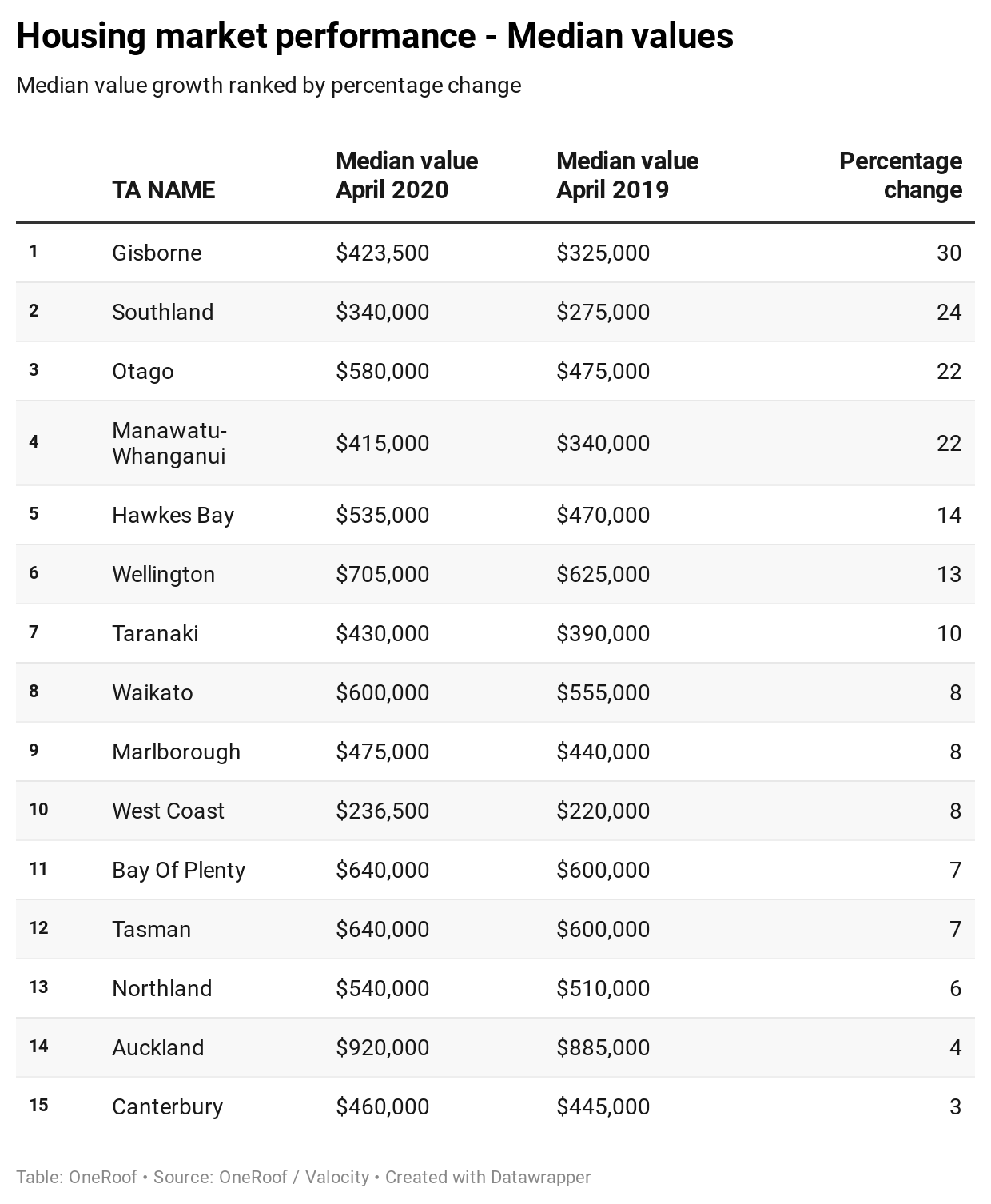
Those who still had job security were taking the opportunity to look for homes, and some of the outer-lying suburbs, like Kingston, at the southern end of the lake, were seeing strong activity in the sub-$700,000 market.
That’s low for pricey Queenstown but Kingston is about 30km from the centre with residents commuting for work.
“I’m not quite as doom and gloom as everyone else. The whole country’s going to take a pretty big hit but I don’t really perceive Queenstown as being too much different from any other area of New Zealand for residential real estate. Don’t forget a lot of our homeowners aren’t mortgaged, especially the high value homes.”
Wait and see
The GFC taught that high value home owners were prepared to wait years for the price to come back to their expectation. However, there may be some who have to sell once the wage subsidy ends and there was another potential wave of job losses.
But Snow says Queenstown had a big construction industry which makes up a big part of the economy and that is still relatively strong.
There is a “lot of wait and see” out there, though, he says.
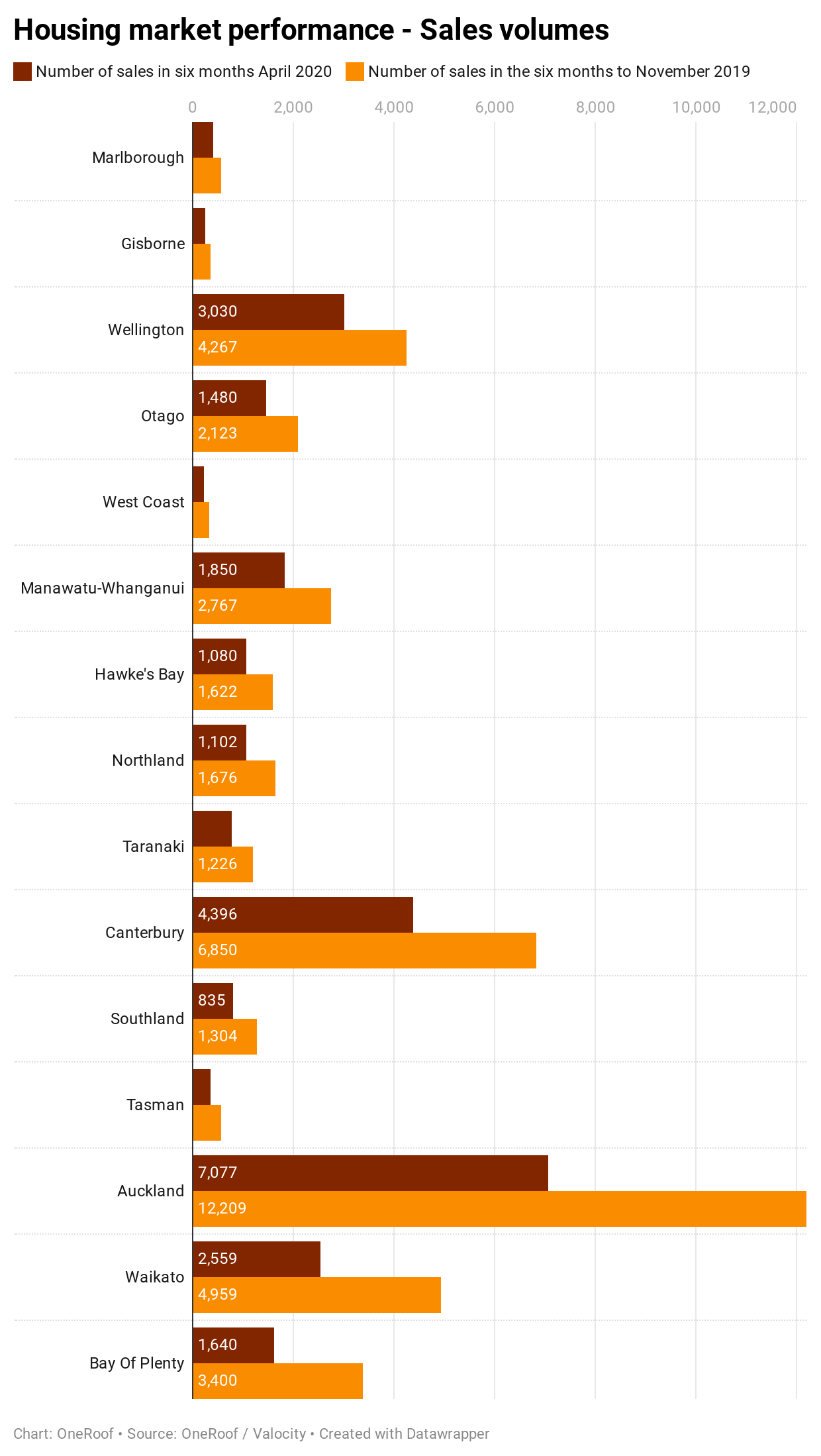
“A lot of purchasers believe the dip in the market is still coming and that’s the point at which they want to enter. I’d suggest for most property types we’ve already seen the biggest part of the correction that’s going to occur.”
Warwick Osborne, of Harcourts Queenstown, also reports a good level of enquiry, especially in the first home buyer market.
“We have had a number of multi offers with first home buyers confident to enter the market. Queenstown is still very much on the property buyers’ radar and as the town gets busier we believe enquiry will continue.”
There is also offshore buyer interest on a number of properties pending border restrictions being lifted.
“A mixture of expats and Australian-based parties are reconsidering the time frame in coming home.”
Mind-blowing
In Whangarei listings are down but it’s back to 90 per cent normal, says Allan Sykes of Ray White.
There is a strong buyer pool and plenty of activity at open homes and there are plenty of offers.
“From our respect, it’s quite mind-blowing in the respect the market appears very strong. We’ve got a good buyer pool and a decreasing stock pool so we’re not finding any negative effect from the tourism or job losses as yet.
“It could be a lag that’s to come for us, but certainly the actions of the buying and selling public are not indicating anything like that at the moment.”
Auckland buyers still make up 20 per cent of sales, from people looking to move north and also investor interest.
“We’re more of a destination that people want to come now than a thoroughfare, because we’re normally a thoroughfare to the Bay of Islands. There’s been a lot of infrastructure from the local council re the loop walk and the Hundertwasser [art centre] and we have good development along the town basin. We’ve got people moving in instead of moving out which makes a difference. “
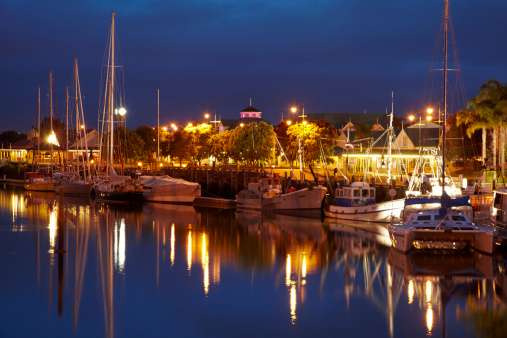
Listings are down but Whangarei is almost back to full strength. Photo / Getty Images
The market is moving as usual in other centres, like Whanganui. Steve Ellis, of Harcourts, says there have been strong sales, including one for $600,000-plus, which in Whanganui , where the average is more like $350,000, buys “a whole lot of house”.
Ellis says with returns in the sharemarket more dubious, property is seen as such a safe bet there may even be an upswing in people wanting to buy.
Tauranga has seen a flurry of activity, says Karen Worley of Eves, and a number of people have taken the time during lockdown to think about what they want from life, leading to real estate decisions.
“Some of those changes were financial, where they didn’t want a mortgage as great as it was, or they were in a position to buy bigger and better.”
Some are thinking about buying lifestyle properties where they can grow their own vegetables or have a second stream of income to protect against future eventualities like pandemics.
While there is no sign of price reductions, there are a lot more conditional contracts and a longer time taken to fulfil bank conditions for finance, she says.
Cracking year
In Napier, the market is “very active”, says James Macpherson of Bayleys. There are multiple offers on nearly every property – “it’s a very, very good time to be selling”, he says.
Hawke's Bay is not totally reliant on tourism and has a strong primary sector to help the local economy.
“Most farmers have had a very good year and horticulture has had a cracking year.”
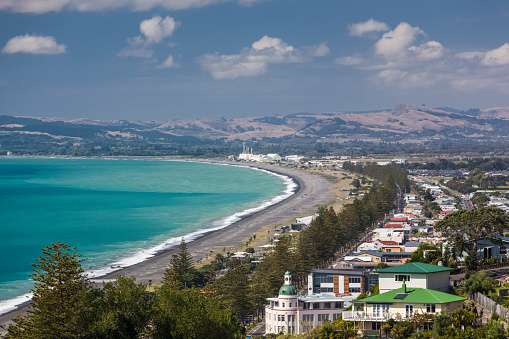
Hawke's Bay agents says Napier's housing market is very active. Photo / Getty Images
Hamilton has a similar story, with Sean Foster of Eves saying there are plenty of people at open homes and numerous multi offers.
However, while there is a spike in real estate activity he is cautious of what is ahead.
“We are potentially approaching what I would call a perfect storm in residential.”
Winter is traditionally quiet and an election is looming which typically slows the market. “And the real unknown is really what the true unemployment numbers are going to be come end of July, early August," Foster says.
Desperate to buy
In Dunedin, a city with a booming real estate market prior to lockdown, there is also plenty of activity.
Joe Nidd, of Nidd Realty, says people who couldn’t buy or sell during lockdown were now in action.
Demand is outstripping supply and prices seem to be remaining steady.
“I don’t feel we’ve settled into any form of normality yet, I think it’s still early in this process but the early indicators are it hasn’t caused significant shock to the real estate market at this point.”
Mortgage brokers are reporting “an enormous bank” of people desperate to buy and take advantage of the property coming to the market but who had run into problems with pre-approval running out and having to reapply with changed criteria like proving job security.
“The delay from the banks has meant these people have delayed looking and that may have explained why initially we were seeing lower buyer numbers but then suddenly it’s ramped back up as those people are coming out of the banks with pre-approval and are hungry to buy again.
“It’s an unusual phenomenon we weren’t expecting, and it’s a good example of why it’s a fool’s game to try and make too strong a prediction about what the future holds because there are so many contributing factors.”
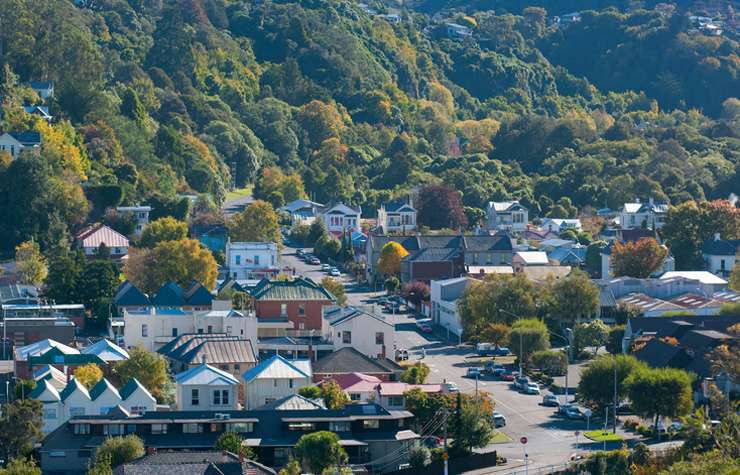
Hungry to buy again. The market in Dunedin is still hot, agents report. Photo / Getty Images
In Christchurch, Ray White’s Tony McPherson says he has been surprised at the rapid bounce back which is being driven by first home buyers.
“We have an association with mortgage broking within our organisation and they had record applications last month.
“I think Christchurch is slightly more unique than other parts of New Zealand because our prices have been relatively static in recent times. At the end of the day it’s probably the best bang for your buck in New Zealand for value of what you can get.
“And I think we’re finding too in Christchurch a high proportion of our population has been through a bit of adversity (with the earthquakes) so they’ve got a bit of underlying resilience which helps them get on with life.”




































































